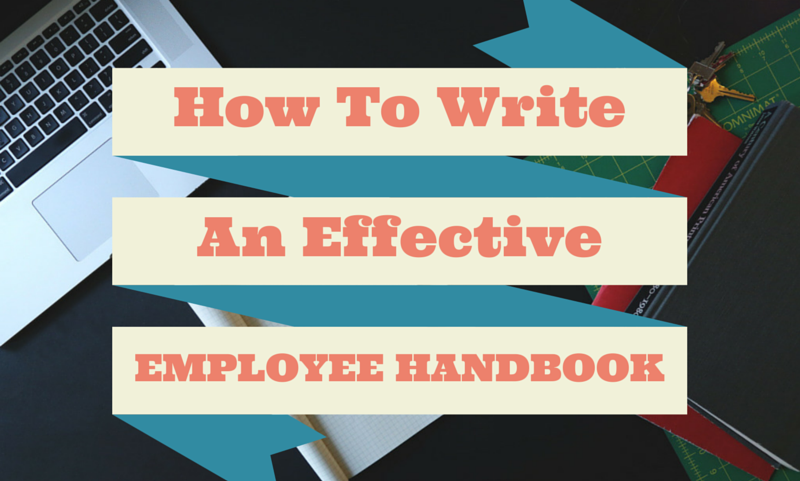12 Handbooks Errors That Require Change


Hey there, childcare boss, I got a question for you. Are you creating your handbooks all by yourself but never reference your state laws, rules and regulations, or you’re not really aware of your local Department of Labor rules and regulations? Well, if so, you may be making some common mistakes that employers, like yourself, make all the time. If your employee handbook hasn’t been updated in the past six months, grab it, follow me, and let’s take a look at what you need to change.
Number one
If you are using a form handbook – meaning you’ve gotten this form off online – and you haven’t edited it to meet your organization, this is the first mistake I need for you to complete. One size doesn’t fit all. Your employee handbook should reflect your organization, it’s policy, and the laws in your state. The risk of using a form handbook without making changes may include items that are irrelevant to your organization or may miss important topics that need to be addressed, which can leave yourself open for unemployment claims.
Number two
Conflict in policies. Whenever you grab your handbook, I want you to start looking through it and take a look and see if there are some policies that are out of sync with others. If you haven’t updated your handbook in the last six months, I’m pretty sure you’ve done a memo, you’ve contacted your staff, you’ve noticed something that you need to change about your team. Well, in order to resolve these issues, make sure that you review your handbook for any conflicts, and then republish it with a revised date.

Number three
The probation trap, also known as the at-will killer. If you promise a worker that they’ll become a permanent employee after completing your probationary period, you may be unknowingly contracting to keep her on forever. Employees with contracts are no longer at-will employees, which means they have to follow a different policy and procedure setup.
Number four
Too much information. Organizations can wall themselves in if they spell out details in every single detail. For employees to stay flexible and deal with unforeseen circumstances, make sure that you list that your policy and procedure are not all-inclusive but that you do reserve the right to update it at any given time.
Number five
Inconsistency with company documents. Writing and modifying an employee handbook allows you to take a look at the big policy and procedure picture. Resolve conflict between policies and procedures that are outdated, no longer used in your organization, that you’ve found that have caused you to get in more trouble than help. Make sure that you resolve them and update your handbook.

Number six
No disclaimer, also known as the accidental contract. I want to make sure that your handbooks will include that this is not a contract. That’s right, write those words out right away and have your staff members sign it. This is not a contract.
Number seven
Do as I say, not as I do. Some company policies and procedures are only written because they’re written, but they are not a part of the ethics of the program. Your company policies must match your statements in your handbook and how you run your business. Inconsistencies serve to only anger employees and enrich their attorneys.
Number eight
Conflict with your local and state laws. Any item in your handbook that conflicts how the state requires your to protect employees is invalid, so don’t invite trouble by inserting the [03:55] of statement.
Number nine
Failure to update. Old information can lead to confusion, discontentment, and litigation. Always keep your handbooks up to date with the newly revised date.
Number ten
Unrealistic rules. Any rules that your supervisors probably won’t enforce aren’t worth the paper they’re printed on. Such rules shake employers’ credibility. Remember, whenever you hire someone to represent you, make sure that you all have a firm understanding of what your rules are and that they will back them up and enforce them.

Number eleven
Broad brush rules. Rules that go beyond business necessity in federal and state legal mandates may violate the laws. You know, there are some things that you just cannot tell a person that they can’t do. For instance, you can’t come to work if you’re pregnant. Although we understand the protection that you may try to offer someone, you can’t tell them that.
Number twelve
Over-the-top anti-union statements. Even though you’re entitled to make reasoned case for keeping your company a non-union shop, some comments go too far and create a legal problem in the future. In a nutshell, watch what you say. As an employer, I do advise you to create a culture of openness and togetherness with your team, but remember you are the leader and, as the leader, there are certain comments or opinions that are not wise for you to voice because you are their employer.
Alright, I’m so excited about these twelve rules. Let me know if they’ve helped you in any way by signing up for my 8-week coaching sessions and going to www.AndreasJumpStartStrategy.com.

